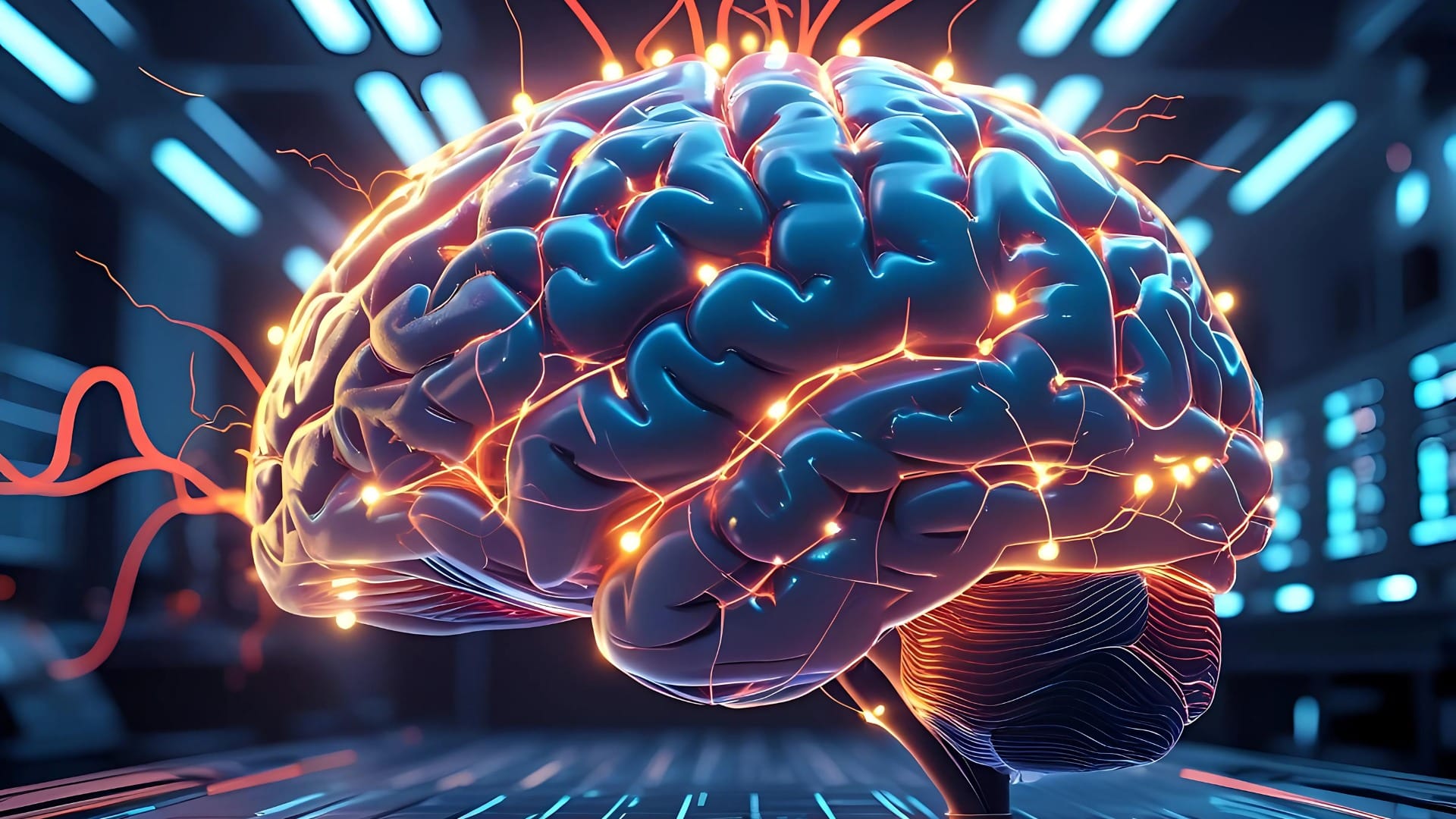The Artificial Intelligence (AI) for SEO Glossary
In this article, we will explore the key concepts and techniques of AI in SEO, as well as the challenges and limitations it faces.

Artificial Intelligence (AI) has revolutionized the field of Search Engine Optimization (SEO), offering new insights and strategies for improving website rankings and driving organic traffic. In this article, we will explore the key concepts and techniques of AI in SEO, as well as the challenges and limitations it faces. By understanding the potential of AI in SEO, businesses can leverage this powerful technology to stay ahead in the highly competitive online landscape.
Key Takeaways
- AI in SEO provides new insights and strategies for improving website rankings and driving organic traffic.
- Natural Language Processing (NLP) helps analyze and understand user queries to provide relevant search results.
- Machine Learning (ML) algorithms can optimize content, identify trends, and improve user experience.
- Data analysis and pattern recognition enable AI to identify patterns and optimize SEO strategies.
- Challenges in AI for SEO include data privacy and security, algorithm bias, and the lack of human creativity.
Here's a glossary of key terms related to the intersection of Artificial Intelligence (AI) and Search Engine Optimization (SEO):
- AI (Artificial Intelligence):
The simulation of human intelligence in machines programmed to think and learn like humans.
- SEO (Search Engine Optimization):
The practice of optimizing web content to improve its visibility and ranking on search engine results pages (SERPs).
- RankBrain:
Google's machine learning AI algorithm is used to help process search queries and deliver more relevant search results.
- Algorithm:
A set of rules or procedures followed by search engines to determine the ranking of web pages in search results.
- Natural Language Processing (NLP):
A branch of AI that enables machines to understand, interpret, and generate human-like text.
- Semantic Search:
A search technique that focuses on understanding the meaning behind words, providing more contextually relevant search results.
- Voice Search Optimization:
The process of optimizing content to enhance its visibility and relevance for voice-activated search queries.
- Crawl Budget:
The number of pages a search engine bot will crawl on a website within a given time frame is influenced by site authority and importance.
- Chatbots:
AI-powered conversational agents that can interact with users in real-time, often used for customer support on websites.
- Structured Data:
Markup added to HTML that provides search engines with additional information about the content on a webpage, enhancing the understanding of the page's context.
- Deep Learning:
A subset of machine learning that involves neural networks with multiple layers, capable of learning and making decisions without human intervention.
- Machine Learning:
A type of AI that enables systems to learn and improve from experience without being explicitly programmed.
- Image Recognition:
AI technology that allows computers to interpret and understand the content of images.
- User Intent:
The goal or purpose behind a user's search query, which search engines aim to understand and deliver relevant results.
- Predictive Analytics:
The use of historical data and machine learning algorithms to predict future outcomes, such as user behaviour and search trends.
- Personalization:
The customization of content or search results based on individual user preferences and behavior.
- Algorithmic Penalty:
A negative impact on a website's search ranking due to a search engine algorithm update, often as a result of non-compliance with guidelines.
- Click-Through Rate (CTR):
The percentage of people who click on a link compared to the total number of people who see the link.
- Algorithm Update:
Changes made to a search engine's ranking algorithm, can impact the visibility and ranking of websites in search results.
- Indexing:
The process by which search engines collect, store, and organize information from web pages to facilitate faster and more accurate retrieval during searches.
Artificial Intelligence (AI) for SEO
Definition of Artificial Intelligence (AI)
Artificial Intelligence (AI) refers to the simulation of human intelligence in machines that are programmed to think and learn like humans. It involves the development of computer systems that can perform tasks that would typically require human intelligence, such as speech recognition, decision-making, problem-solving, and language translation. AI technology relies on advanced algorithms and big data to analyze and interpret information, enabling machines to make informed decisions and improve their performance over time. In the context of SEO, AI plays a crucial role in optimizing websites and improving search engine rankings. By leveraging AI techniques such as natural language processing (NLP) and machine learning (ML), marketers can gain valuable insights into user behavior, identify trends, and tailor their SEO strategies accordingly. However, while AI offers numerous benefits, it also presents challenges in terms of data privacy and security, algorithm bias, and the lack of human creativity in generating content.
Applications of AI in SEO
Artificial Intelligence (AI) has numerous applications in the field of Search Engine Optimization (SEO). One of the key applications is content generation, where AI can assist in creating high-quality and relevant content for websites. AI can also be used for keyword research by analyzing search trends and identifying the most effective keywords for optimization. Additionally, AI-powered chatbots can provide instant customer support and enhance user experience. Another important application is data analysis, where AI algorithms can analyze large amounts of data to identify patterns and insights for improving SEO strategies. Overall, AI has the potential to revolutionize the way SEO is conducted, making it more efficient and effective in driving organic traffic and improving search rankings.
| Applications of AI in SEO |
|---|
| Content Generation |
| Keyword Research |
| Chatbots |
| Data Analysis |
AI has the potential to revolutionize the way SEO is conducted, making it more efficient and effective in driving organic traffic and improving search rankings.
AI Techniques for SEO
Natural Language Processing (NLP)
Natural Language Processing (NLP) is a subfield of artificial intelligence (AI) that focuses on the interaction between computers and human language. It enables computers to understand, interpret, and generate human language in a meaningful way. NLP techniques are widely used in search engine optimization (SEO) to improve the accuracy and relevance of search results. Some popular NLP techniques used in SEO include keyword extraction, sentiment analysis, and entity recognition. These techniques help search engines understand the context and intent behind user queries, resulting in more accurate and personalized search results. NLP also plays a crucial role in content creation and optimization by identifying relevant topics, analyzing user feedback, and generating natural-sounding content. However, it is important to note that NLP has its limitations, such as the inability to fully grasp the nuances of human language and the potential for bias in language models. Despite these challenges, NLP continues to evolve and enhance the capabilities of AI in the field of SEO.
Machine Learning (ML)
Machine Learning (ML) is a subset of artificial intelligence that focuses on enabling computers to learn and make predictions or decisions without being explicitly programmed. It involves the use of algorithms and statistical models to analyze and interpret large amounts of data. ML techniques are widely used in various aspects of SEO, such as keyword research, content optimization, and link building. By leveraging ML, SEO professionals can gain valuable insights and automate repetitive tasks, leading to more efficient and effective SEO strategies.
One of the key advantages of ML in SEO is its ability to identify patterns and trends in data, which can help optimize website performance and improve search engine rankings. ML algorithms can analyze user behavior, search queries, and other relevant data to understand user intent and deliver more relevant and personalized search results.
However, it is important to note that ML is not a perfect solution and has its limitations. The accuracy and reliability of ML models depend on the quality and diversity of the training data. ML algorithms can also be susceptible to bias and may not always capture the full context or nuances of human language and behavior. Therefore, it is crucial for SEO professionals to continuously monitor and evaluate the performance of ML-based SEO strategies and make necessary adjustments to ensure optimal results.
In summary, Machine Learning (ML) plays a crucial role in modern SEO by enabling data-driven decision-making, improving user experience, and optimizing website performance. By leveraging ML techniques, SEO professionals can gain valuable insights, automate repetitive tasks, and stay ahead in the ever-evolving world of search engine optimization.
Data Analysis and Pattern Recognition
Data analysis and pattern recognition are essential techniques in AI for SEO. Data analysis involves examining and interpreting large sets of data to identify patterns, trends, and insights that can be used to optimize SEO strategies. This process helps in understanding user behavior, search patterns, and website performance. Pattern recognition is the ability of AI algorithms to identify and classify patterns in data, such as keyword trends or user preferences. By recognizing patterns, AI can make predictions and recommendations to improve SEO efforts. These techniques play a crucial role in extracting valuable information from data and enhancing the effectiveness of SEO campaigns.
In addition, AI algorithms can utilize machine learning to automatically analyze and categorize data, making the process more efficient and accurate. By leveraging data analysis and pattern recognition, SEO professionals can gain valuable insights and make data-driven decisions to optimize their websites for better search engine rankings.
| AI Technique | Description |
|---|---|
| Natural Language Processing (NLP) | NLP enables AI to understand and interpret human language, allowing for better content optimization and semantic search. |
| Machine Learning (ML) | ML algorithms enable AI to learn from data and improve its performance over time, helping in tasks such as keyword research and content recommendation. |
| Data Analysis and Pattern Recognition | These techniques involve analyzing large sets of data to identify patterns, trends, and insights that can be used to optimize SEO strategies. |
AI techniques such as data analysis and pattern recognition are revolutionizing the field of SEO. With the ability to analyze vast amounts of data and identify patterns, AI can provide valuable insights and recommendations for improving search engine rankings and user experience.
Challenges and Limitations of AI in SEO
Data Privacy and Security
Data privacy and security are major concerns in the use of Artificial Intelligence (AI) for SEO. With the increasing use of AI techniques such as Natural Language Processing (NLP) and Machine Learning (ML), there is a need to ensure that sensitive data is protected and not misused. Companies need to implement robust security measures to safeguard user information and prevent unauthorized access. Additionally, algorithm bias is another challenge in AI for SEO, where the algorithms may favor certain types of content or websites, leading to unfair rankings. It is important to address these challenges and ensure that AI in SEO is used ethically and responsibly.
| Challenges | Solutions |
|---|---|
| Data privacy and security | Implement robust security measures and encryption techniques. |
| Algorithm bias | Regularly monitor and analyze algorithms to identify and address bias. |
| Lack of human creativity | Combine AI techniques with human expertise to enhance creativity and innovation. |
Note: The table above showcases some of the challenges and possible solutions in using AI for SEO.
AI in SEO has the potential to revolutionize the way websites are optimized for search engines. However, it is crucial to prioritize data privacy and security, address algorithm bias, and find ways to incorporate human creativity to ensure a fair and effective use of AI in SEO.
Algorithm Bias
Algorithm bias is a significant challenge in AI for SEO. It refers to the tendency of algorithms to favor or discriminate against certain groups or individuals based on factors such as race, gender, or socioeconomic status. This bias can lead to unfair and biased search results, which can have negative impacts on the visibility and ranking of certain websites. Addressing algorithm bias is crucial to ensure a fair and inclusive online environment. To mitigate this issue, search engines and AI developers need to implement ethical guidelines and regularly monitor and test their algorithms for bias. Additionally, involving diverse and representative voices in the development and training of AI models can help reduce bias and improve the accuracy and fairness of search results.
| Algorithm Bias | Definition |
|---|---|
| Algorithm bias refers to the tendency of algorithms to favor or discriminate against certain groups or individuals based on factors such as race, gender, or socioeconomic status. |
Lack of Human Creativity
The lack of human creativity is a significant challenge in AI for SEO. While AI techniques can analyze data and patterns, they often struggle to generate truly innovative and creative ideas. This limitation is especially evident in content creation, where human creativity plays a crucial role in developing unique and engaging content. AI can assist in generating content ideas and optimizing keywords, but it cannot replace the creative thinking and storytelling abilities of humans. It is important to strike a balance between AI automation and human creativity to achieve the best results in SEO.
| Challenges of AI in SEO |
|---|
| Lack of Human Creativity |
Some of the limitations of AI in SEO include:
- Data Privacy and Security: AI algorithms require access to a large amount of data, raising concerns about privacy and security.
- Algorithm Bias: AI systems can be biased due to the data they are trained on, leading to unfair rankings and recommendations.
- Lack of Human Creativity: AI struggles to generate truly innovative and creative ideas, especially in content creation.
"AI can assist in generating content ideas and optimizing keywords, but it cannot replace the creative thinking and storytelling abilities of humans."
Frequently Asked Questions
What is Artificial Intelligence (AI) for SEO?
Artificial Intelligence (AI) for SEO refers to the use of AI techniques and algorithms to optimize and improve search engine optimization strategies.
Why is AI important in SEO?
AI helps in analyzing large amounts of data, identifying patterns, and making data-driven decisions to improve search rankings and user experience.
What are the applications of AI in SEO?
AI is used for keyword research, content optimization, on-page and off-page SEO analysis, link building, and user intent analysis.
What is Natural Language Processing (NLP) in AI for SEO?
NLP is a branch of AI that focuses on the interaction between computers and humans through natural language. In SEO, NLP is used to understand and analyze user queries and optimize content accordingly.
How does Machine Learning (ML) contribute to SEO?
Machine Learning algorithms can analyze large amounts of data to identify patterns, predict user behavior, and optimize search engine rankings.
What are the challenges of using AI in SEO?
Challenges include data privacy and security concerns, algorithm bias, and the lack of human creativity in AI-generated content.
Check out these amazing content from Bookspotz:










